Following a crackdown on Iranian media beginning in 2000, many Iranians turned to weblogging to provide and find political news. The first Persian language blog is thought to have been created by Hossein Derakhshan,, in 2001. Derakhshan also provided readers with a simple instruction manual in Persian on how to start a blog. In 2004, a census of blogs around the world by the NITLE found 64,000 Persian language blogs. In that year the Islamic government also began to arrest and charge bloggers as political dissidents and by 2005 dozens of bloggers had been arrested.

The Islamic Revolutionary Guard Corps, also called Sepah or Pasdaran, is a multi-service primary branch of the Iranian Armed Forces. It was officially established by Ruhollah Khomeini as a military branch in May 1979, in the aftermath of the Iranian Revolution. Whereas the Iranian Army protects the country's sovereignty in a traditional capacity, the IRGC's constitutional mandate is to ensure the integrity of the Islamic Republic. Most interpretations of this mandate assert that it entrusts the IRGC with preventing foreign interference in Iran, thwarting coups by the traditional military, and crushing "deviant movements" that harm the ideological legacy of the Islamic Revolution. Currently, the IRGC is designated as a terrorist organization by Bahrain, Saudi Arabia, Sweden and the United States.

Mohsen Rezaee is an Iranian conservative politician affiliated with the Resistance Front of Islamic Iran and senior military officer in the Islamic Revolutionary Guard Corps, who is currently a member of the Expediency Discernment Council, secretary of the Supreme Council for Economic Coordination, as well as the secretary of the Iranian government's Economic Committee. He was secretary of the Expediency Discernment Council from 1997 to 2021 and Vice President of Iran for Economic Affairs between 2021 and 2023.

The Basij, Niru-ye Moghāvemat-e Basij), full name Sâzmân-e Basij-e Mostaz'afin, is one of the five forces of the Islamic Revolutionary Guard Corps (IRGC). The force is named Basij; an individual member is called basiji in the Persian language. As of July 2019, Gholamreza Soleimani is the commander of the Basij.
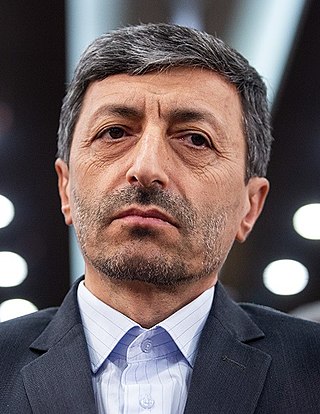
Sayyid Parviz Fattah is an Iranian conservative politician and former member of Revolutionary Guard. He is currently head of the Execution of Imam Khomeini's Order since 2023.

Hassan Abbasi is an Iranian conspiracy theorist and an Islamic Revolutionary Guard Corps officer who heads its think-tank 'Center for Borderless Security Doctrinal Analysis'. Abbasi is primarily known for his conspiracy theories, and for delivering controversial speeches on issues including economics, history, politics and cinema.

The Law Enforcement Command of the Islamic Republic of Iran, previously known as the Law Enforcement Force of the Islamic Republic of Iran or Disciplinary Force of the Islamic Republic of Iran, abbreviated as Faraja, is the uniformed police force in Iran. The force was created in early 1992 by merging the Shahrbani, Gendarmerie, and Islamic Revolutionary Committees into a single force. It has more than 260,000 police personnel, including border guard personnel, and is under the direct control of the Supreme Leader Ali Khamenei who is the head of state and Commander-in-Chief of the Armed Forces. In 2003, some 40000 women became the first female members of the police force since the 1979 Iranian Revolution. The Guidance Patrol, commonly called the "morality police", was a vice squad/Islamic religious police in the Law Enforcement Force of the Islamic Republic of Iran, established in 2005 with the task of arresting people who violate the Islamic dress code, usually concerning the wearing by women of hijabs covering their hair.

The Islamic Revolutionary Guard Corps Ground Forces, acronymed NEZSA, are the land force which the Islamic Revolutionary Guard Corps (IRGC), maintain in parallel to the regular army of Iran. In addition to their conventional military role, the revolutionary guards' ground forces are more geared towards internal disorder than the regular army. However, in late years, the IRGC Ground Forces and by extension the entire IRGC, have transitioned to becoming an expeditionary force, capable of projecting power abroad, through conventional military operations or via proxies and unconventional warfare. There are at least around 150,000 IRGC Ground Force troops.

Mahmoud Ahmadinejad is an Iranian principlist and nationalist politician who served as the sixth president of Iran from 2005 to 2013. He is currently a member of the Expediency Discernment Council. He was known for his hardline views and nuclearisation of Iran. He was also the main political leader of the Alliance of Builders of Islamic Iran, a coalition of conservative political groups in the country, and served as mayor of Tehran from 2003 to 2005, reversing many of his predecessor's reforms.
Following the 2009 Iranian presidential election, protests against alleged electoral fraud and in support of opposition candidates Mir-Hossein Mousavi and Mehdi Karroubi occurred in Tehran and other major cities in Iran and around the world starting after the disputed presidential election on 2009 June 12 and continued even after the inauguration of Mahmoud Ahmedinejad as President of Iran on 5 August 2009. This is a timeline of the events which occurred during those protests.
The 2011–2012 protests in Iran were a series of demonstrations in Iran which began on 14 February 2011, called "The Day of Rage". The protests followed the 2009–2010 Iranian election protests and were influenced by other concurrent protests in the region.

Mohammad Reza Naqdi is an Iranian military officer who is a senior officer in the IRGC.
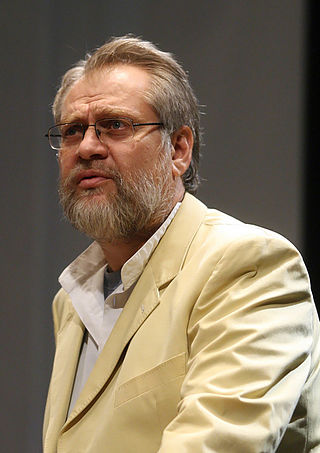
Nader Talebzadeh, also known as Nader Ordoubadi, was an Iranian conservative journalist and filmmaker.
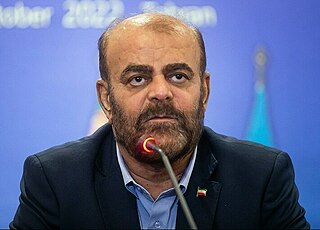
Rostam Ghasemi was an Iranian military officer and conservative politician who was the Minister of Roads and Urban Development from 25 August 2021 to 22 November 2022. He was Minister of Petroleum from 3 August 2011 to 15 August 2013.

Mehdi Khazali is an Iranian publisher, physician, blogger and son of a leading right-wing cleric and former Counsel of Guardians member, Ayatollah Abolghasem Khazali. He is also an Islamic scholar and the director of the Hayyan Cultural Institute in Tehran. Contrary to the legacy of his father - who is a strong supporter of Iranian President Ahmedinejad - he opposes the excessive mixing of religion and government and believes it can be harmful in modern society. He is one of the strongest critics of the government in Iran. He was a presidential candidate at the 2017 election, but was disqualified by the Guardian Council.

Seyyed Sattar Beheshti was an Iranian blogger who died under suspicious and unclear circumstances in early November 2012, several days after being arrested by the Iranian Cyber Police unit for criticizing the government of the Islamic Republic on Facebook, and after making a signed complaint of being tortured while in custody. His reported death has drawn international condemnation and led to the dismissal of the commander of Iran's cybercrimes police unit.
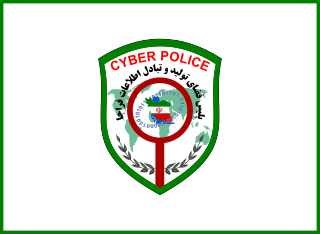
The Iranian Cyber Police is a unit of the Islamic Republic of Iran Police, founded in January 2011. In December 2012, the head of Tehran's cyber police unit was dismissed in relation to the death of Iranian blogger Sattar Beheshti, who was being held in the cyber police's custody.

Tasnim News Agency is a semi-official news agency in Iran associated with the Islamic Revolutionary Guard Corps (IRGC). Launched in 2012, its purpose is to cover a variety of political, social, economic and international subjects along with other fields.
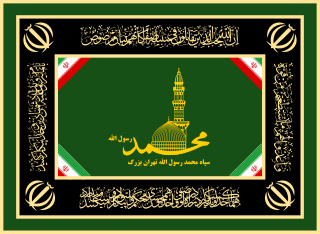
27th Mohammad Rasulullah Division was a division of the Islamic Revolutionary Guard Corps Ground Forces based in Tehran.

The 2017 Tehran attacks were a series of two simultaneous terrorist attacks that occurred on 7 June 2017 that were carried out by five terrorists belonging to the Islamic State of Iraq and the Levant (ISIL) against the Iranian Parliament building and the Mausoleum of Ruhollah Khomeini, both in Tehran, Iran, leaving 17 civilians dead and 43 wounded. The shootings were the first terrorist attacks in Tehran in more than a decade, and the first major terror attack in the country since the 2010 Zahedan bombings.




















